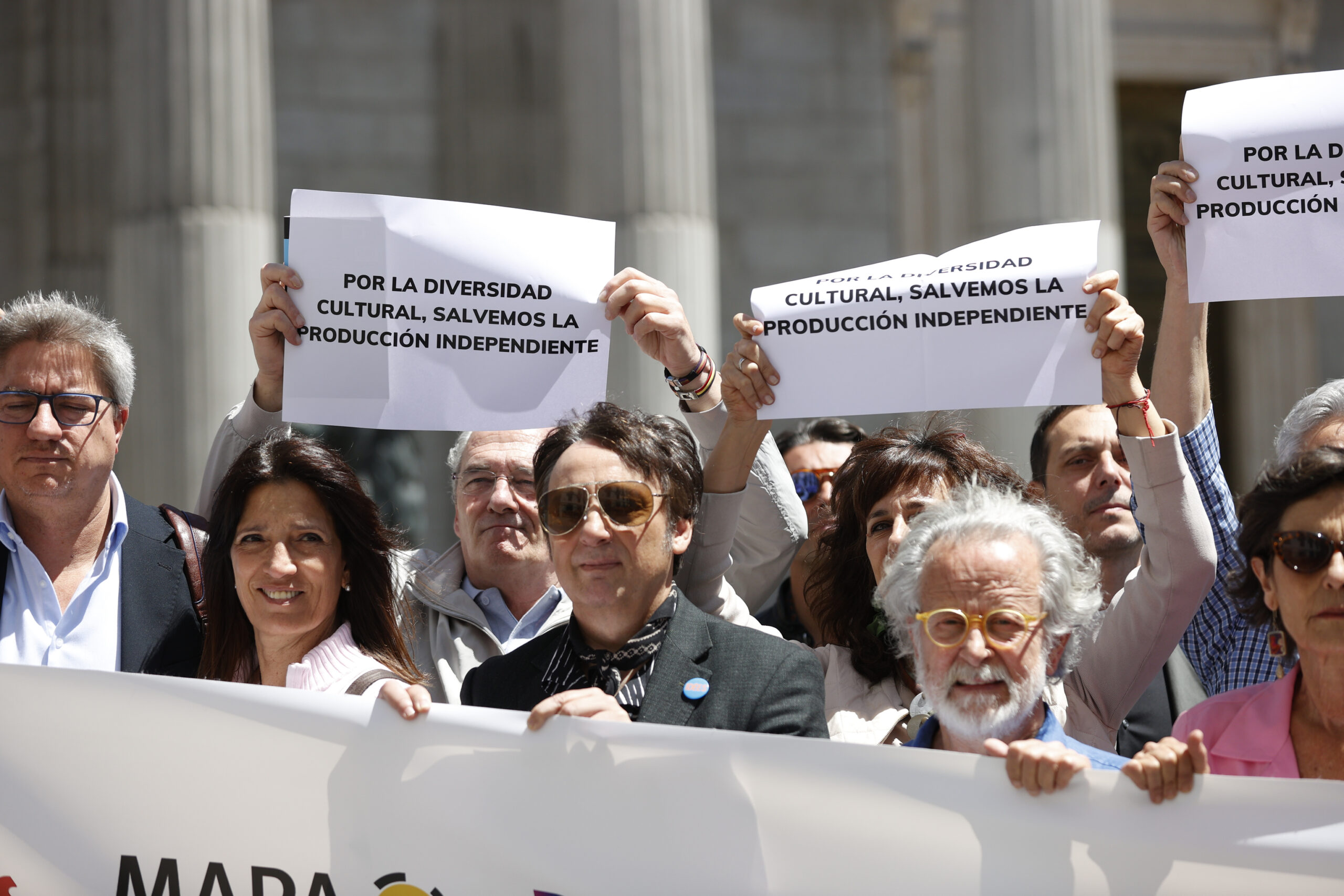Another heart attack vote. Now for the audiovisual law. Once again, the Government ends up at odds with its partners and, on this occasion, also with itself, because the PSOE and United We Can have split with one vote in favor and one abstention, respectively, despite the fact that it is a rule that has been sponsored by the Executive itself.
Thus, the PP’s abstention has been decisive for the Executive to dodge a bullet and get Congress to approve the audiovisual law. However, this numerical victory has consequences for the PSOE, because it has opened another new crisis with its ERC and EH Bildu allies, with whom trust is more worn every day due to the Pegasus case, and internal clash in the coalition with United We Can.
It has been revealed in the vote: 130 yeses (PSOE, PNV, CC, NC, PRC), 83 noes (Vox, ERC, EH Bildu, Junts, Más País, PDeCAT) and 131 abstentions (PP, United We Can, Citizens) .
The twist that has placed the norm in a serious bind and has left it in the hands of the PP occurred at the end of its processing, when the PSOE introduced a last-minute amendment that has put the producers and the world on a war footing of the cinema More than 350 directors, independent producers and actors have signed a manifesto, with Pedro Almodóvar, Paco León, Icíar Bollaín and Antonio Resines leading the way. His complaint is that the change of a single word will allow large corporations (Atresmedia and Mediaset) to access the quota that is reserved for independent production, which puts this sector at risk of “death”.
That amendment has “dynamited”, in the words of ERC, the pact reached between the Government and its investiture partners and has triggered many of them to pass in a few hours from the vote in favor to the vote against, placing the approval of the text. Among them is United We Can, which maintains that the law will serve the interests of the “oligopoly of the four big televisions.”
The agreement had been achieved after tortuous negotiations that date back to last autumn, when ERC and EH Bildu forced the Government to accept certain demands in said law to approve the General State Budgets. Demands that, in short, sought to shield productions in the co-official languages (Catalan, Basque and Galician) on the major audiovisual platforms (Netflix, HBO Max or Disney).
It is the second time this month that the PP saves a fundamental law for the Government from being overturned by its own parliamentary allies. Now the audiovisual law has gone thanks to an abstention but on May 2 it also did so with the National Security law when it voted against an amendment to the entirety presented by ERC. Similarly, the PP also recently helped the Executive when it voted against creating an investigation commission on the Pegasus case.
Second time in a month that the PP avoids the Government a great political defeat
The audiovisual law, which arises to transpose a European directive and that the Government has wanted to take advantage of to turn Spain into a European “hub” of audiovisual production, now goes to the Senate, where the partners of the Executive will continue to press on the issue of producers independent. For this they have the support of United We Can, which has joined the latest attempts by ERC and EH Bildu to reverse the controversial change.
These parties blame the PSOE for “distorting” the definition of independent producer, in a context in which television stations are required by law to invest 5% of their income in that sector. With the change, they denounce, they are equated to large companies and their existence is put at risk because it promotes a greater concentration around Atresmedia and Mediaset.
These complaints are being supported by well-known directors and actors from the world of cinema in Spain, many of them usually framed in the socialist orbit, who have harshly criticized the situation.
Given the commotion, the PSOE has opened the door this Thursday to introduce changes in the Senate to calm the storm.
Conforms to The Trust Project criteria
















